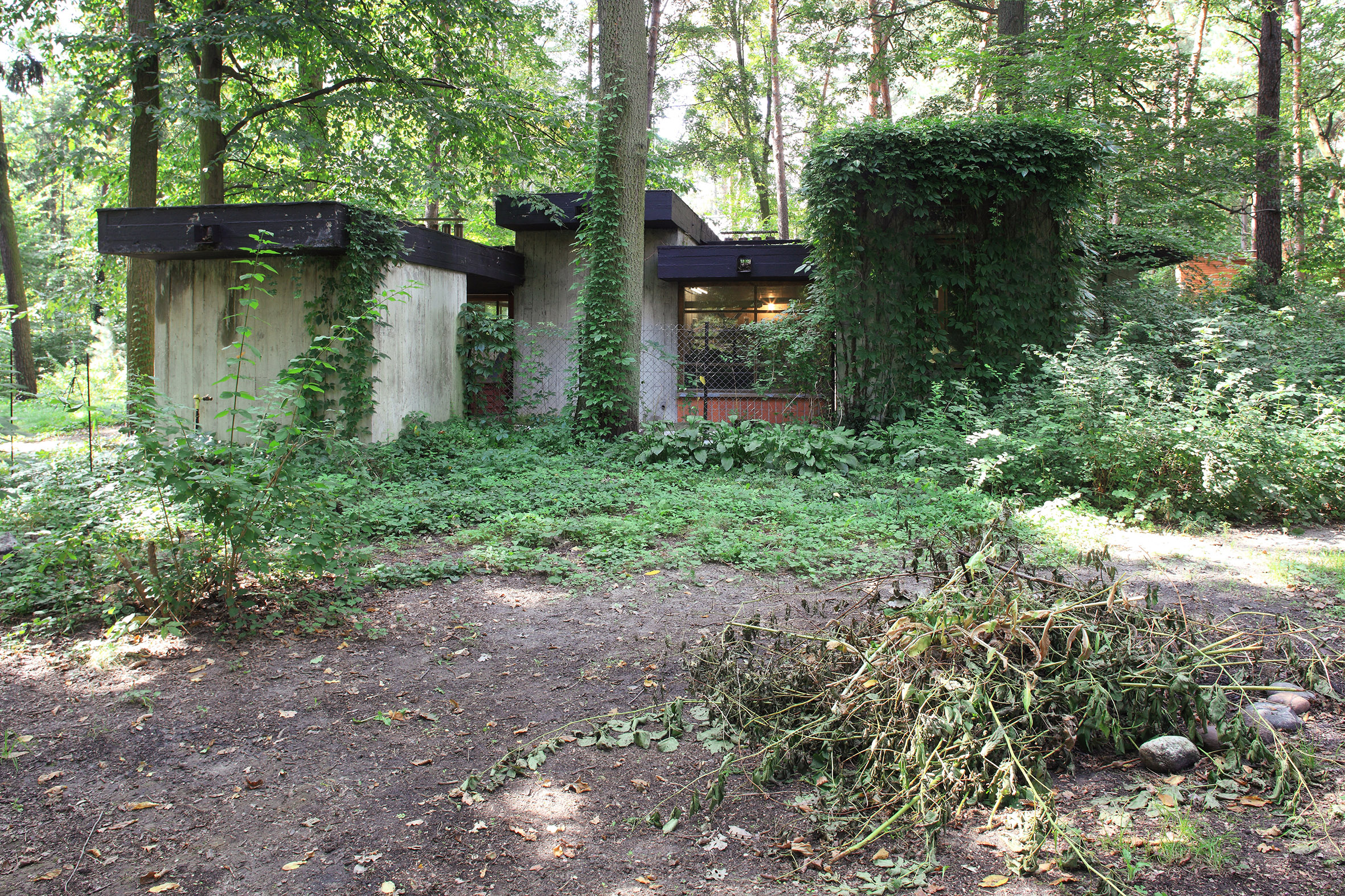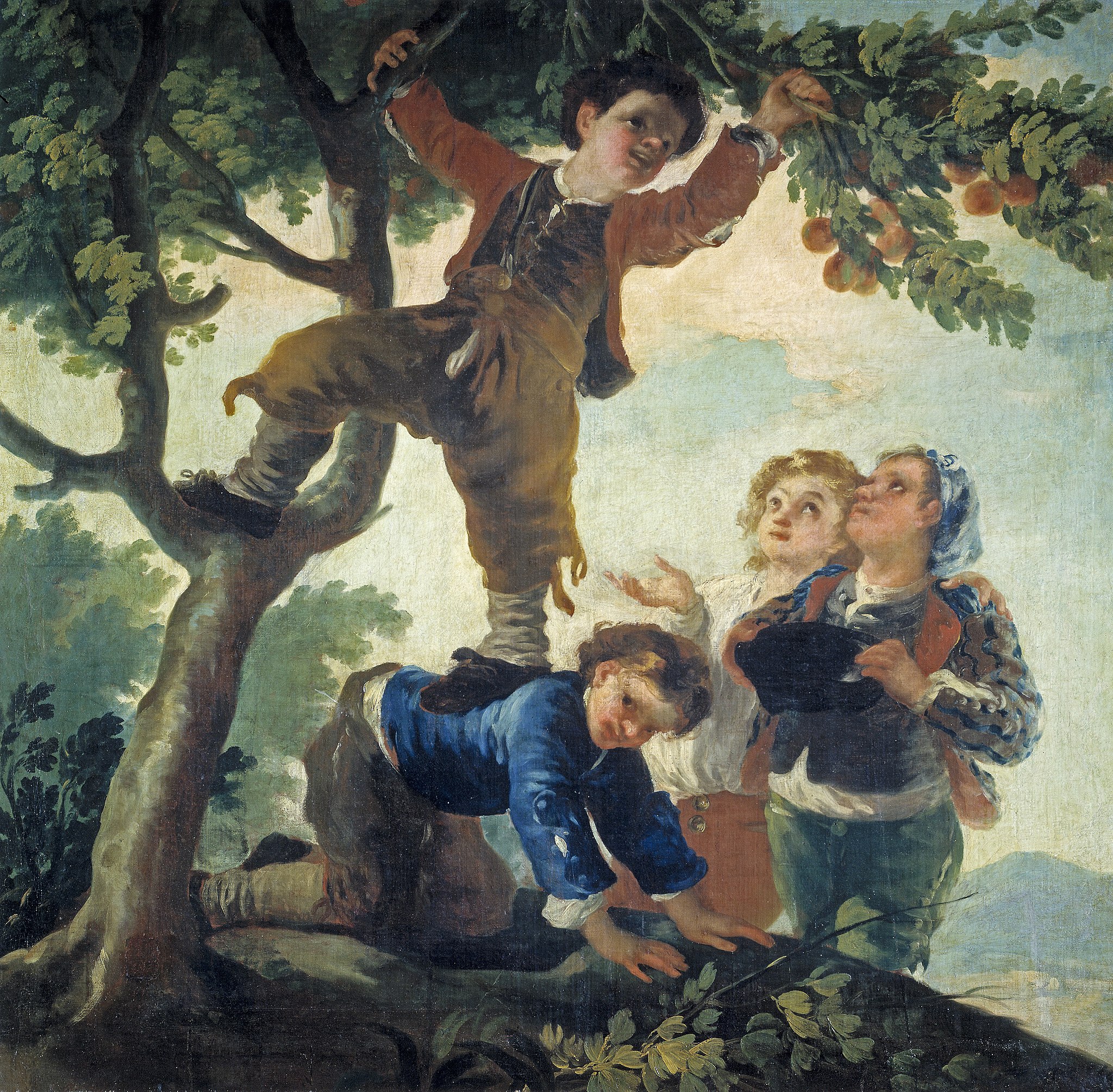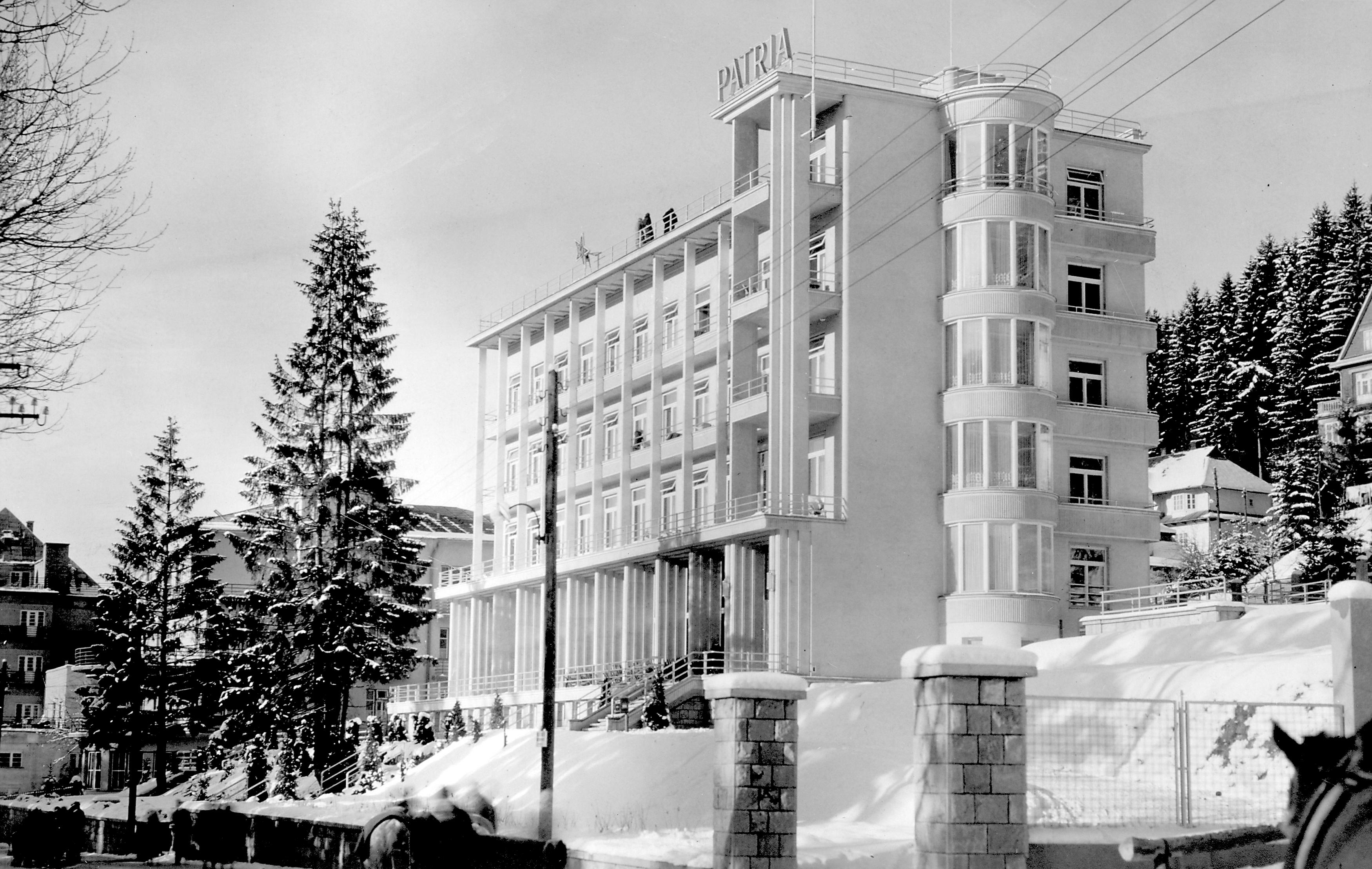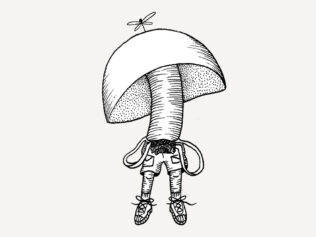
“Utopia is possible. I know, because I grew up there,” says Andrzej Górz, co-founder of Open Jazdów. He left the urban melting pot to create a rural idyll for the future in Lower Silesia. A place where ‘we’ is more important than ‘me’.
Berenika Steinberg: You were born and raised in Jazdów, right in the center of Warsaw. It’s a settlement of wooden Finnish houses, constructed in 1945 for employees of the Capital Reconstruction Office [BOS]. What was your childhood like there?
Andrzej Górz: I remember it as a rural enclave where everyone knew each other. Shortly after the war, BOS employees built Jazdów together – they cleared the area of rubble, then planted and tended trees, shrubs and vegetables. They extended the little houses, they helped each other. So the ties were formed over time. People raised their children together, organized celebrations for holidays and name days. As kids, we used to chase each other between the houses, climb trees, pick apples and enjoy the benefits of nature. It was like living in a rural community where you spend time together, share difficulties and borrow money from each other when you need it.
That sounds too perfect! Wasn’t there any friction between neighbors?
There must have been. But you know that place functioned as a community. Residents shared what they had. Gardening tools were basically shared property, so if someone was trimming a hedge and already had the equipment out, they’d also trim their neighbor’s hedge. When I cleared the snow from the road, I also cleared the part belonging to my neighbors, who could then repay us some other way. My neighbor had good apples, but she wasn’t able to pick them herself, so we helped her out and some of the apples were for her, some for us. In our garden there were fruit trees, gooseberries and raspberries. Another neighbor had delicious redcurrants.
What did you want to be as a child?
We had a computer at home early on. I soon realized I had a knack for it and when I was in middle school, I planned to become an IT specialist. After graduating from high school, I went to the Polish-Japanese Academy of Information Technology.
You were still studying in 2011 when the Warsaw authorities decided to demolish your settlement.
The Jazdów settlement was by definition temporary, makeshift – the engineers, architects, town planners and monument restorers were meant to live there for five years while rebuilding Warsaw. Then they were destined for demolition.
But the settlement survived.
It was reduced in size over the years, but it survived. Every four years or so, the specter of demolition returned. In 2011, the mayor of Śródmieście district issued an ultimatum: either you move out of here, or I’ll find a way to move you out. We were given time to submit an application for an apartment exchange, because the houses are council accommodation. Some of the residents went for it, and a few houses were torn down. The situation was on a knife-edge.
In response, you and your neighbors founded the Jazdów Finnish Houses Residents Association and mounted a challenge.
Living in Jazdów, we’ve put in a lot of work and heart over generations to make this place look like a green, park-like or rural enclave on a beautiful escarpment. We didn’t want there to be a shopping centre, an industrial estate, or an embassy surrounded by a three-metre-high fence there after we moved out. We decided that we could move out, but only after binding public consultations had taken place and a local plan had been developed. In other words, when we were sure that this unique place wouldn’t be razed and redeveloped by neoliberal policies.
In 2012, you opened your homes to visitors. That was an important step. I myself have long dreamed of going inside one of those houses and seeing what it would be like to live there. But I’ve never had the opportunity. Anyway, that night, the oldest resident of Jazdów showed guests around the settlement, invited them into the houses, and talked about the neighborhood’s history.
It was then that I had the idea, inspired by IT, to hack the system around us. Kevin Mitnick, who was pursued right across America, said that he hacked people, not systems. The weakest link in the system is the human – you can always find a way to get to them, extract information from them and use it for a good purpose. In 2013, following another Long Night of Museums event in Jazdów, riding a wave of enthusiasm, we approached the officials and asked them to provide us with empty houses for more than one night – for the entire summer. We planned to organize a spectacular funeral for our settlement during that time. A wake where the wine would be flowing, the people singing and dancing. Because if Jazdów is going to be bulldozed, at least let’s give it a proper send-off. The officials said they had nothing to lose, because the decisions had been made and could no longer be changed. In July 2013, they gave us the keys to seven houses.
That’s how Open Jazdów was born.
The abandoned houses that had been destroyed and robbed of their electrical installations, where homeless people had lit fires, were revived. We opened them up with social, cultural, educational and artistic activities. The Warsaw authorities had no ideas for how to use the place, but we started to animate it, we showed an alternative. We also submitted an application for public consultations to be carried out, which was signed by over 2000 residents. This enabled us to alter the power balance in the fight. Even the director of the Department of Real Estate Management told us that if the city authorities had anticipated what was going to happen, they would never have agreed to make the houses available.
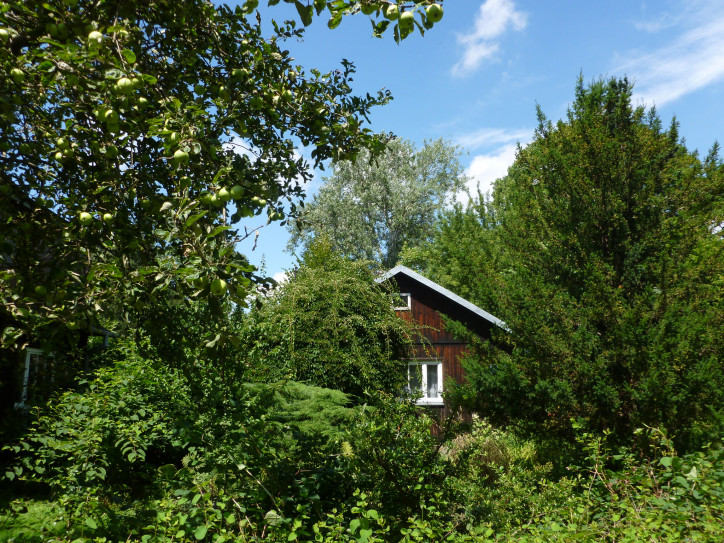
I don’t understand…
During those summer months, people found out about the existence of Jazdów, which in many ways is the only place of its kind in the world. They saw its value. We started to get visits from monument restorers, naturalists and architects. Together, we stamped our feet and told the city authorities: enough, you won’t wipe this out!
And what about your IT career?
I was faced with a dilemma. I could either join an IT company or become engaged in social activities. I realized there may not be another opportunity like this. There’s only one Jazdów. Lots of interesting people, educationalists and ecologists, were getting involved with the houses. There was a creative ferment that was worth being a part of. I was earning money from IT commissions, I had a student loan, but above all, I was living in my family home in Jazdów. I had this comfort, it was easier for me to be socially engaged.
What did you manage to achieve?
Among other things, in 2015, the result of the public consultations was recognized as binding. The proposed variants envisaged that Jazdów would be a space for social, educational, cultural and artistic activities. A year later, the layout of the settlement was included in the municipal register of monuments. Some of the houses were also included because of their particular qualities.
In 2015, you co-founded the Jazdów Rotary Cultural Centre. Then in 2017, your wife Maria Wijas became the centre’s coordinator.
That’s where we met. We started working together – she was a coordinator, I was a volunteer. We became a couple. At that time, Maria was already thinking about leaving the city to live in the countryside. The idea of it scared me. I had such strong ties with Jazdów, with Warsaw. Like all true Varsovians, I saw myself as a city boy who knows where to be, in what circumstances, and who to talk to. On the other hand, I was burning out and I’d fulfilled myself in terms of my career and the activities in Jazdów. When Rafał Trzaskowski, the mayor of Warsaw, won the elections, he said that Jazdów would be on his list of priorities. Of course, I didn’t do it alone – without the community around Open Jazdów, I wouldn’t have achieved anything. I say “I”, but I think “we” – I can’t forget the former and current residents of the settlements, the non-governmental organizations, the groups operating informally in the houses, and all the people involved in Jazdów over the years. In any case, I couldn’t go any further with Jazdów. My mission had come to an end. I realized that it was time to thank myself for what I’d done, tell myself I’d done a good job, and move on.
So you moved to the countryside?
In my mind, I had this stereotypical picture with the title ‘escape to the real countryside’: I’ve got some problems, so I drop everything and run off into the wilderness. I’ll hide away, be a hero who cuts his own wood, carries water and looks after animals.Living in the countryside can be as complicated as living in the city if you’re stuck in the model of an atomized society. Eventually, I realized that what I’d be searching for in the countryside was community. When I thought seriously about the future, I understood that what I’d like for my children was largely what I’d experienced in Jazdów. A world where one mother raises the children on Monday, another on Tuesday, and a third on Wednesday. But in the city you’re on your own, you travel an hour to nursery and an hour back home. Everything starts to revolve around whether you can afford a babysitter, a meal box subscription, online shopping and a cleaner. You have no time for anything and you turn into a money-making machine. That’s why we decided to leave and build a larger community outside the city.
You now work at the Leśna District Office in Lower Silesia in the field of environmental education. That’s two huge changes – from city to countryside, and from an NGO to local government. How are you finding the job?
When you’re working in an NGO, you’re always bothering someone, constantly fighting for something. But the scale of impact and reach from the perspective of the district office can be much greater. The office in Leśna is a unique place – here, the municipal authorities are the catalyst for a positive ecological transformation. I see great potential in joint activities between local governments and NGOs. Because when we work together, write projects and submit applications, we develop a conviction that we can move mountains and create a new paradigm. In addition, we’re trying to bring back an ethos of public service. We’re there for people, we say ‘hello’ to everyone we meet in the corridor and we ask how we can help. We recently received some badges with the district coat of arms, so I pinned one to my jacket lapel. The point is for people to be proud again to work in the district office and to feel that their work has meaning.
What about the community you were looking for?
For now, Maria and I are renting a flat a few miles from Leśna. Two years ago, we spread the word among friends and acquaintances that we wanted to build an intentional community outside the city. Now it’s maturing, it’s hatching. It’s going slowly, but I’m hoping to make a start next year. We’re still looking for partners who would be interested in supporting our project on a business or philanthropic basis.
What is an intentional community?
It’s a non-atomized, socially cohesive, intergenerational community functioning in a single area and living life to the fullest. It’s a place of sharing, cooperation and having an influence on your surroundings. It produces healthy food and herbs, and runs its own school and nursery. The development of culture and art on a small scale, but at a high level, is also important. This could also be the definition of an ecovillage, but it’s not just about being ‘eco’. The community we’re striving for is distinguished by the fact that it has an intention, a mission. In our case, it’s caring for people on the intellectual disability spectrum. They will live and work with us. For example, autistic people will be able to work in a seed bank or baking bread. The reason that these people are often excluded from the labour market in the regular system becomes an asset and a superpower within the community.
Where did the intentional community idea come from?
In a way, we all have some kind of disability. Each of us requires empathy, mindfulness and care. In the system for which you are trained, you have to earn money, enter the corporate world, build a house, plant a tree, hire a babysitter and a cleaner. In this kind of world, there’s a segregation of people, functions and spaces. There’s no room for your weaknesses, for getting up one day and saying you’re indisposed, like you used to do to get out of PE lessons. You just don’t have that option, because everything has to be done ASAP and you need to look like the tough guy. But in a community, you might feel unable to milk the cow some days. And everything can be organized so that life goes on. The cow will be milked, the grain sown, the vegetables harvested, and the bread baked.
Where will it be?
We’d like to live in Leśna district and organize everything in terms of the urban planning and architecture. The common parts – the community centre, school, library and workshops – will be separated to allow for more private space. If, for example, we build a shared kitchen, then instead of you buying a blender and me buying a juicer which I’ll use once a month, we’ll buy a fancy food processor together. Together, we are richer – we can afford to buy better tools and equipment, to invest in our development, and to travel.
Will it be a single building or will each family have a separate house? Will you eat meals together?
There are various possible solutions. It’s important to be process-oriented. You might have some idea of what it will be like, but when you sit down at the table and start talking to people, you have to follow the way things go. There are examples of ecovillages that have failed because they adopted a doctrine that was too hard to implement. And it turned out that prohibitions and commands really don’t keep people together. We can live in a straw or brick house, on 10 or 15 hectares, in a meadow or on a hill – this will be determined by all of our intentions, our willingness to cooperate, and also any possible help from outside. The important question is ‘why’. Why do we want to move out of one place and live in another, who do we want to be, where are we going?
So, why?
To live well, to share passions, responsibilities and duties, and to be able to develop as individuals and as a community. To create a good place to live on Earth. Nowadays, it’s not the alternative anymore, it’s the avant-garde. This way of life will make it easier to adapt to climate change and deal with the challenges we’re facing. It also provides a concept for how to repopulate the countryside in a modern way. Either we get into farming and create ever-larger monocultures flooded with pesticides, or we get organized and establish places for human survival that will ensure our overall development. Places that produce in an efficient, eco-friendly way, drawing on the local natural heritage.
So you want to create something similar to the Jazdów of your youth.
Absolutely! This is the dream of a childhood land for our future children, an idyll. People say utopia is impossible. But I know it’s possible, because I grew up there.
Did you lose anything by leaving Warsaw?
So far, I’ve only gained things. A new perspective, a fresher outlook. Warsaw isn’t the reference anymore. People say, “But you live so far from Warsaw.” And I say, “You’re the ones who live far from Lower Silesia!”
Is it hard for a boy who lived in the capital all his life and created a cultural centre there?
No way! There are so many events here, you’d need more than one lifetime to participate in all the valuable things happening in the area! Besides, paradoxically, in Warsaw I was so busy that I didn’t have time to take advantage of all the cultural and educational events, even in Jazdów. Or even to meet my closest friend, who lived a 15-minute bike ride from me! But here, I work full-time and I still have time to take a packed lunch with me, and to go for a picnic with my wife after work.
But you must have some problems here that you didn’t have in the city.
One – an ideological problem. For now, I’ve had to get over my anti-car stance, because you can’t get by here without a car. You can try toughing it out, but you won’t get far.
Is there anything you miss?
My grandmother, who’s stayed in Warsaw. But our friends come and visit us. Here, we can spend time together and talk about life, not like before, meeting once a month for a quick beer. There is a lot going on here, but I also relax a lot, I have time for myself and my wife. Now I want to settle down into myself, into nature. Walk barefoot and firmly on the ground. Not only dream, but also make dreams come true.
Translated from the Polish by Kate Webster





